Xinan Chen
Probing the Critical Point (CritPt) of AI Reasoning: a Frontier Physics Research Benchmark
Oct 01, 2025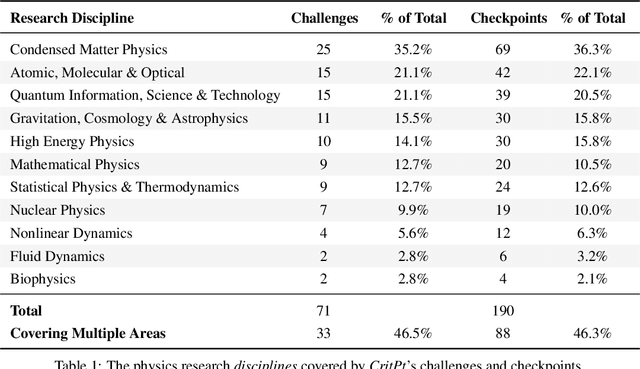
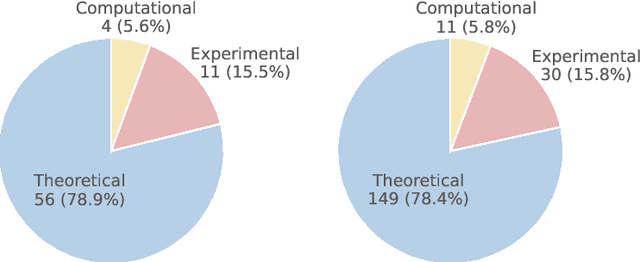
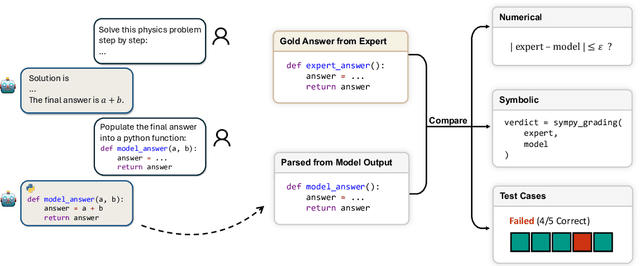
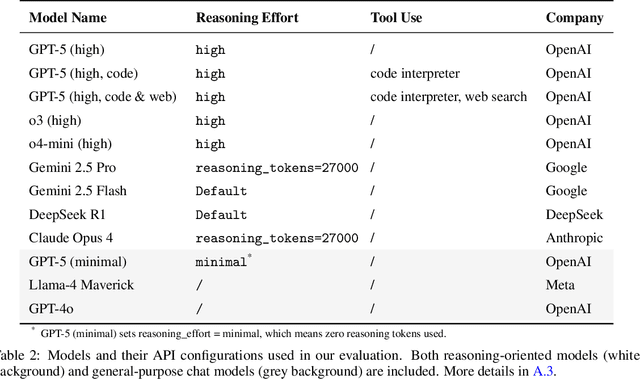
Abstract:While large language models (LLMs) with reasoning capabilities are progressing rapidly on high-school math competitions and coding, can they reason effectively through complex, open-ended challenges found in frontier physics research? And crucially, what kinds of reasoning tasks do physicists want LLMs to assist with? To address these questions, we present the CritPt (Complex Research using Integrated Thinking - Physics Test, pronounced "critical point"), the first benchmark designed to test LLMs on unpublished, research-level reasoning tasks that broadly covers modern physics research areas, including condensed matter, quantum physics, atomic, molecular & optical physics, astrophysics, high energy physics, mathematical physics, statistical physics, nuclear physics, nonlinear dynamics, fluid dynamics and biophysics. CritPt consists of 71 composite research challenges designed to simulate full-scale research projects at the entry level, which are also decomposed to 190 simpler checkpoint tasks for more fine-grained insights. All problems are newly created by 50+ active physics researchers based on their own research. Every problem is hand-curated to admit a guess-resistant and machine-verifiable answer and is evaluated by an automated grading pipeline heavily customized for advanced physics-specific output formats. We find that while current state-of-the-art LLMs show early promise on isolated checkpoints, they remain far from being able to reliably solve full research-scale challenges: the best average accuracy among base models is only 4.0% , achieved by GPT-5 (high), moderately rising to around 10% when equipped with coding tools. Through the realistic yet standardized evaluation offered by CritPt, we highlight a large disconnect between current model capabilities and realistic physics research demands, offering a foundation to guide the development of scientifically grounded AI tools.
MeLA: A Metacognitive LLM-Driven Architecture for Automatic Heuristic Design
Jul 28, 2025Abstract:This paper introduces MeLA, a Metacognitive LLM-Driven Architecture that presents a new paradigm for Automatic Heuristic Design (AHD). Traditional evolutionary methods operate directly on heuristic code; in contrast, MeLA evolves the instructional prompts used to guide a Large Language Model (LLM) in generating these heuristics. This process of "prompt evolution" is driven by a novel metacognitive framework where the system analyzes performance feedback to systematically refine its generative strategy. MeLA's architecture integrates a problem analyzer to construct an initial strategic prompt, an error diagnosis system to repair faulty code, and a metacognitive search engine that iteratively optimizes the prompt based on heuristic effectiveness. In comprehensive experiments across both benchmark and real-world problems, MeLA consistently generates more effective and robust heuristics, significantly outperforming state-of-the-art methods. Ultimately, this research demonstrates the profound potential of using cognitive science as a blueprint for AI architecture, revealing that by enabling an LLM to metacognitively regulate its problem-solving process, we unlock a more robust and interpretable path to AHD.
PGU-SGP: A Pheno-Geno Unified Surrogate Genetic Programming For Real-life Container Terminal Truck Scheduling
Apr 15, 2025Abstract:Data-driven genetic programming (GP) has proven highly effective in solving combinatorial optimization problems under dynamic and uncertain environments. A central challenge lies in fast fitness evaluations on large training datasets, especially for complex real-world problems involving time-consuming simulations. Surrogate models, like phenotypic characterization (PC)-based K-nearest neighbors (KNN), have been applied to reduce computational cost. However, the PC-based similarity measure is confined to behavioral characteristics, overlooking genotypic differences, which can limit surrogate quality and impair performance. To address these issues, this paper proposes a pheno-geno unified surrogate GP algorithm, PGU-SGP, integrating phenotypic and genotypic characterization (GC) to enhance surrogate sample selection and fitness prediction. A novel unified similarity metric combining PC and GC distances is proposed, along with an effective and efficient GC representation. Experimental results of a real-life vehicle scheduling problem demonstrate that PGU-SGP reduces training time by approximately 76% while achieving comparable performance to traditional GP. With the same training time, PGU-SGP significantly outperforms traditional GP and the state-of-the-art algorithm on most datasets. Additionally, PGU-SGP shows faster convergence and improved surrogate quality by maintaining accurate fitness rankings and appropriate selection pressure, further validating its effectiveness.
SciCode: A Research Coding Benchmark Curated by Scientists
Jul 18, 2024



Abstract:Since language models (LMs) now outperform average humans on many challenging tasks, it has become increasingly difficult to develop challenging, high-quality, and realistic evaluations. We address this issue by examining LMs' capabilities to generate code for solving real scientific research problems. Incorporating input from scientists and AI researchers in 16 diverse natural science sub-fields, including mathematics, physics, chemistry, biology, and materials science, we created a scientist-curated coding benchmark, SciCode. The problems in SciCode naturally factorize into multiple subproblems, each involving knowledge recall, reasoning, and code synthesis. In total, SciCode contains 338 subproblems decomposed from 80 challenging main problems. It offers optional descriptions specifying useful scientific background information and scientist-annotated gold-standard solutions and test cases for evaluation. Claude3.5-Sonnet, the best-performing model among those tested, can solve only 4.6% of the problems in the most realistic setting. We believe that SciCode demonstrates both contemporary LMs' progress towards becoming helpful scientific assistants and sheds light on the development and evaluation of scientific AI in the future.
Analytics and Machine Learning in Vehicle Routing Research
Feb 19, 2021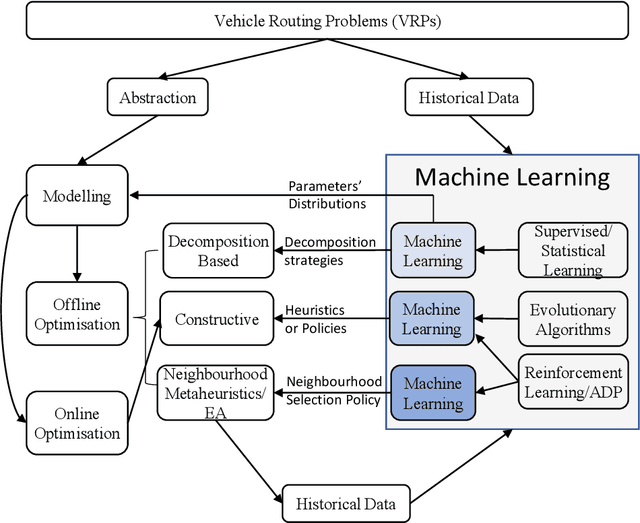
Abstract:The Vehicle Routing Problem (VRP) is one of the most intensively studied combinatorial optimisation problems for which numerous models and algorithms have been proposed. To tackle the complexities, uncertainties and dynamics involved in real-world VRP applications, Machine Learning (ML) methods have been used in combination with analytical approaches to enhance problem formulations and algorithmic performance across different problem solving scenarios. However, the relevant papers are scattered in several traditional research fields with very different, sometimes confusing, terminologies. This paper presents a first, comprehensive review of hybrid methods that combine analytical techniques with ML tools in addressing VRP problems. Specifically, we review the emerging research streams on ML-assisted VRP modelling and ML-assisted VRP optimisation. We conclude that ML can be beneficial in enhancing VRP modelling, and improving the performance of algorithms for both online and offline VRP optimisations. Finally, challenges and future opportunities of VRP research are discussed.
 Add to Chrome
Add to Chrome Add to Firefox
Add to Firefox Add to Edge
Add to Edge